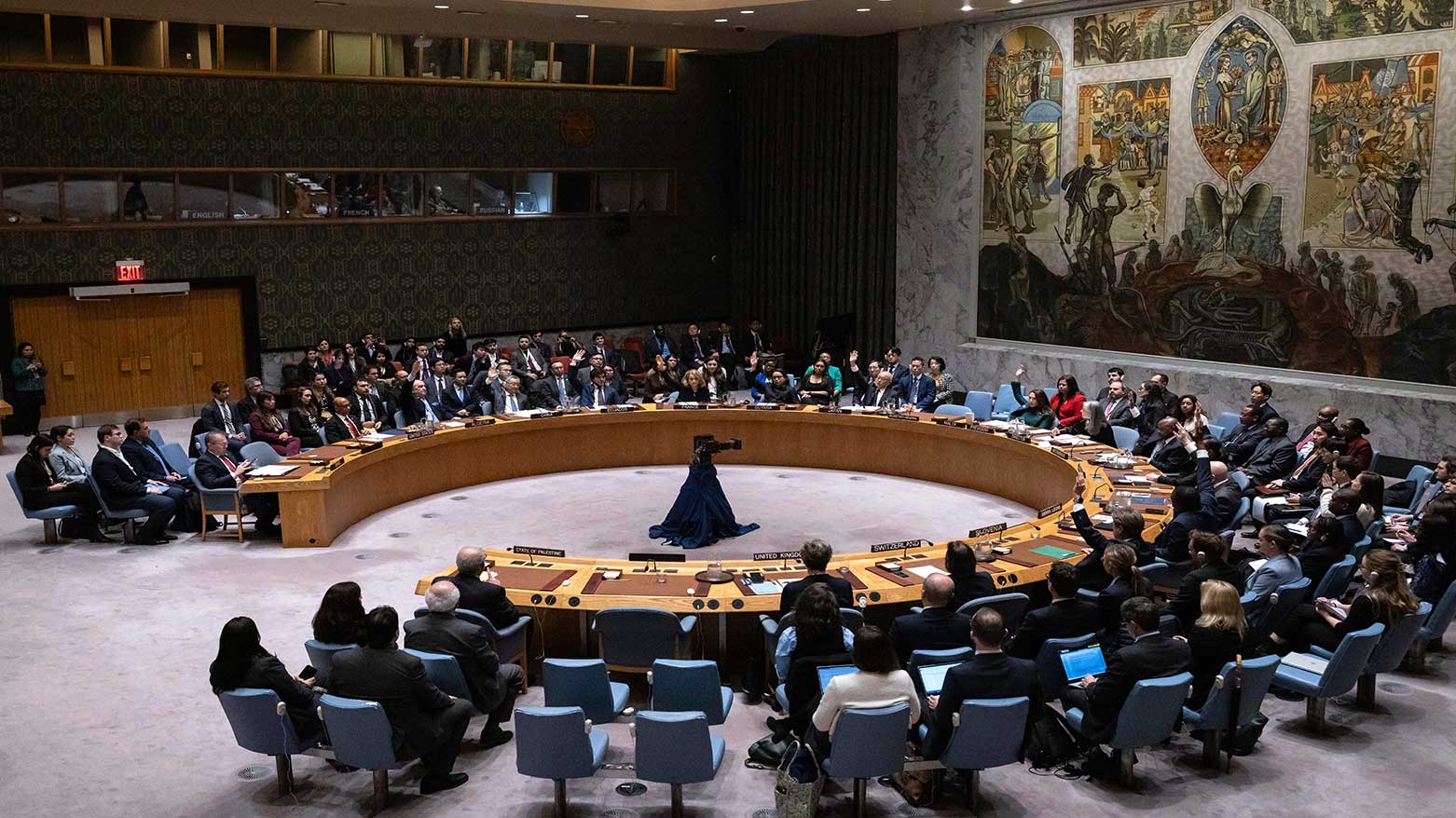UN Security Council Convenes Emergency Meeting Over Iran’s Escalating Nuclear Threat
The meeting comes in the wake of the latest reports from the IAEA, which indicate that Iran continues to enrich uranium at levels just shy of the 90% threshold required for nuclear weapons.

ERBIL (Kurdistan24) – The United Nations Security Council (UNSC) will hold a closed-door session on Wednesday to discuss Iran’s expanding stockpile of uranium enriched near weapons-grade levels, diplomats revealed to Reuters on Monday.
The urgent meeting, requested by six council members—France, Greece, Panama, South Korea, Britain, and the United States—underscores rising global concerns over Tehran’s nuclear ambitions and transparency.
Growing Tensions Over Iran’s Nuclear Program
The meeting comes in the wake of the latest reports from the International Atomic Energy Agency (IAEA), which indicate that Iran continues to enrich uranium at levels just shy of the 90% threshold required for nuclear weapons. While Iran insists that its nuclear program is solely for peaceful purposes, its refusal to fully cooperate with the IAEA has fueled suspicions among Western powers and regional adversaries.
The six nations behind the request are also pressing Iran to fulfill its obligation to provide the IAEA with "the information necessary to clarify outstanding issues related to undeclared nuclear material detected at multiple locations in Iran," according to diplomatic sources. This demand highlights growing frustration over Iran’s reluctance to account for past nuclear activities that remain unexplained.
A History of Defiance and Diplomatic Stalemates
Iran’s nuclear activities have long been a flashpoint in international relations. The 2015 Joint Comprehensive Plan of Action (JCPOA), a landmark nuclear deal, placed strict limits on Tehran’s uranium enrichment in exchange for sanctions relief. However, following U.S. President Donald Trump's withdrawal from the agreement in 2018 and the subsequent reimposition of sanctions, Iran gradually abandoned its commitments, ramping up enrichment efforts while limiting IAEA access to its facilities.
Meanwhile, European signatories of the JCPOA, including France and Britain, have struggled to keep the deal alive, urging Iran to return to compliance while expressing mounting concerns over its recent nuclear advances.
Trump, now in his second term, has swiftly reinstated a "maximum pressure" campaign against Iran to prevent its development of nuclear weapons and counter its regional influence. On February 4, 2025, he signed a National Security Presidential Memorandum that reimposed stringent economic sanctions, specifically targeting Iran's oil exports to reduce them to zero, and revoked existing sanctions waivers.
Implications for Regional and Global Security
Iran’s growing stockpile of highly enriched uranium has alarmed not only Western nations but also regional powers such as Israel and Saudi Arabia, who view Tehran’s nuclear progress as a direct threat. Israeli officials have repeatedly warned that they will take military action if diplomacy fails to halt Iran’s march toward potential nuclear weapons capability.
The upcoming UNSC session is expected to reignite debate over possible responses, including tougher sanctions or even the revival of past efforts to diplomatically contain Iran’s nuclear ambitions. However, with Russia and China—both UNSC permanent members—historically opposing increased pressure on Iran, the meeting may further expose divisions within the council over how to handle the crisis.
What’s Next?
As the UNSC convenes behind closed doors, the world will be watching closely for any indications of a unified response. Whether the meeting results in concrete action or further diplomatic gridlock remains to be seen, but one thing is clear: Iran’s nuclear trajectory will remain a central issue in international security discussions for the foreseeable future.